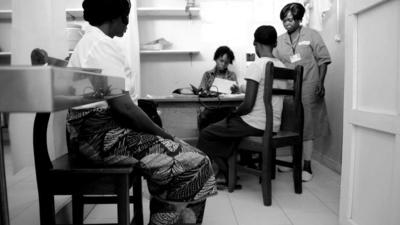Armed groups and inter- ethnic tensions are prevalent in Boga, in the district of Ituri (Orientale Province). Médecins Sans Frontières/Doctors Without Borders (MSF) has been working in this isolated region to improve the quality of care offered to the local population and displaced people.
Health facilities are scarce, often rundown and the region’s medical staff are under-trained. The cost of care is often too high for the local population.
We are focusing on reproductive health and the medical and psychological treatment of victims of violence. MSF is currently working to support Boga General Referral Hospital (GRH) and Rubingo healthcare centre.
Forgotten victims of violence
“The healthcare centres in the region have limited capacity to treat the most vulnerable people, such as victims of sexual, domestic or armed violence,” says Kevin Coppock, MSF’s Head of Mission.
“The consultations we offer are available not only to women, but also men, who are sometimes forgotten victims of rape and violence.”
MSF has been working in Orientale Province since 2003. This new project, working with local partners is essential in a region where very few humanitarian organisations are present.
In early April, MSF set up an emergency ward and a ten-bed intensive care unit at Boga GRH, and begun working to improve the laboratory and sterilisation unit.
The team also started repairing the facility, with the operating theatre and maternity ward being upgraded. During the first month of activities, more than 160 patients were seen in the emergency ward.
In the mother-child unit at Rubingo healthcare centre, the teams had to extend the antenatal consultations from one to two days a week to take care of all pregnant women coming in.
Over the coming months, MSF will carry out the same activities at Burasi healthcare centre.
Raising awareness of health issues
Our work is backed up by awareness-raising activities in local communities. In April, 2,750 people received relevant information at 37 locations within the healthcare area.
MSF has been considering its eventual withdrawal since the start of the project.
“We are working closely with local actors such as the Bureau Central de Zone, the management committees and civil society, to promote a cost-effective, reliable and sustainable healthcare system.
By maintaining medical care at an affordable cost, we ensure the health facilities will be able to self-finance after our departure. We must also make sure the necessary skills are transferred to local healthcare personnel.”






